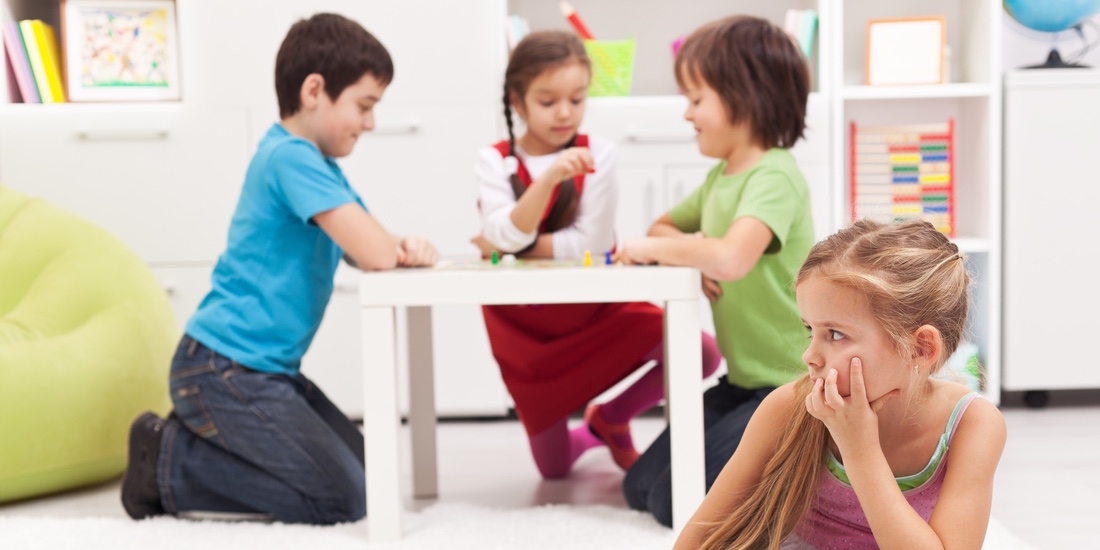Watching a child turn to you crying for the first time because “A friend said ‘I can’t play’”, is a hard and sad situation every parent and teacher faces. It’s hard to watch, hard to hear and stirs up a variety of emotions. We’re immediately transported back to our own childhoods, and want to quickly *do* something to help our children. So let’s rationally work through it.
Learn
Basic Concepts
- Social exclusion is a main theme in a child’s development. It poses teaching challenges, parenting challenges and interpersonal relationship challenges. But if we empower children to be a part of their own learning process, we’ll be making the most of social conflict.
- There are many reasons why a child might exclude:
- More comfortable with a familiar play partner
- Protecting a relationship
- Anxiety about unknown factors involved when they play with a new or unfamiliar peer
- Anxiety about a child because of previous encounters that have been unsuccessful or uncomfortable
- Anxiety about a child because they have observed behaviors that make them uncomfortable
- Difficulty in managing more than one friend and/or idea
- Trying out a different social role
- Exerting control and power over the play or over another child(ren)
- Gender differences and gender roles
- Wanting to play a different game than the other child(ren)
- A preconceived idea about what the other child is capable of playing or wants to play
- There may be characteristics about the other child that are the source of annoyance (e.g., constant singing or humming)
- Sensory stimulation (e.g., too crowded, too noisy, too fast moving – child wants to keep area clear of these behaviors)
- Haven’t yet made the developmental leap from one play partner to multiple. Children develop interest and acquire skills at different paces
- Messages we want to send our children about themselves and others when talking about conflict:
- Empowerment
- Increasing empathy
- Understanding individual strengths and challenges
- Developing flexibility
- Hearing and appreciating others
- Not being afraid to take risks
- Developing trust in adults as social supports
- Developing positive citizenship roles
- Building tolerance for children’s styles that aren’t their own
- Understanding differences between themselves and their friends is okay and normal
- Developing social responsibility
- Emotional intelligence
- Building compassion
Just Remember
- Children haven’t yet mastered the social world. They’re actively observing, interacting and trying on different leadership and follower roles. They’re also testing behaviors and social rules or boundaries.
- Excluding and being excluded are normal and natural; children wouldn’t be able to understand the social world and their place in it without going through this critical developmental phase.
Here is what you could say to your child when they come heartbreakingly crying to you?
